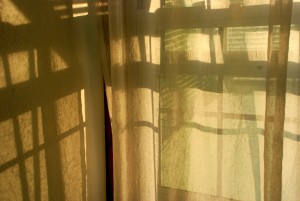My prayer is not prayer, not exactly. It includes words. It may even begin with words: “Modeh ani l’fanecha / grateful am I in your presence; baruch atah Adonai, Eloheinu, Melech Haolam, hanotein laya-eif ko-ach / Praise to You, Adonai our God, Sovereign of the universe, who gives strength to the weary; ahavah rabbah ahavtanu / with a deep, expansive, manifold love do You love us.” The words illuminate aspects of my experience. This morning, in the car on the... Read more
















